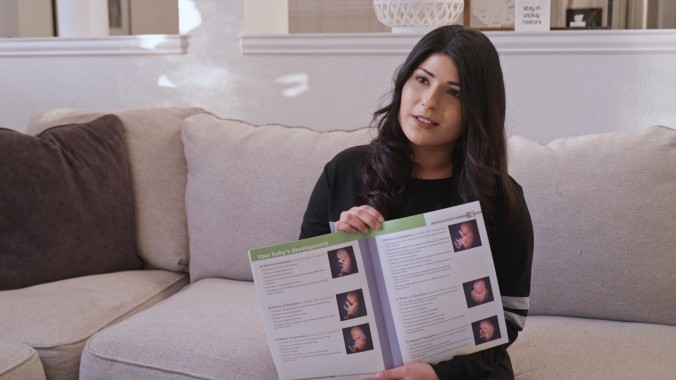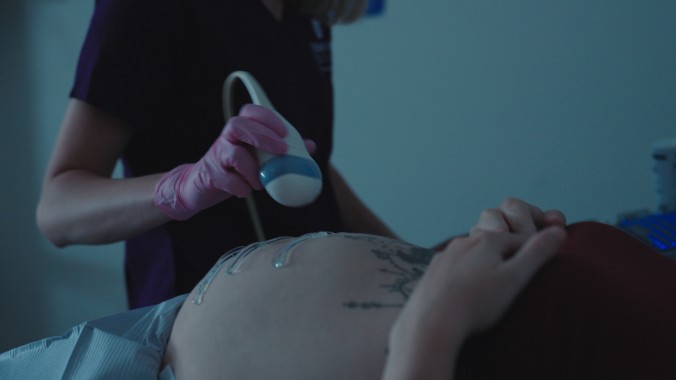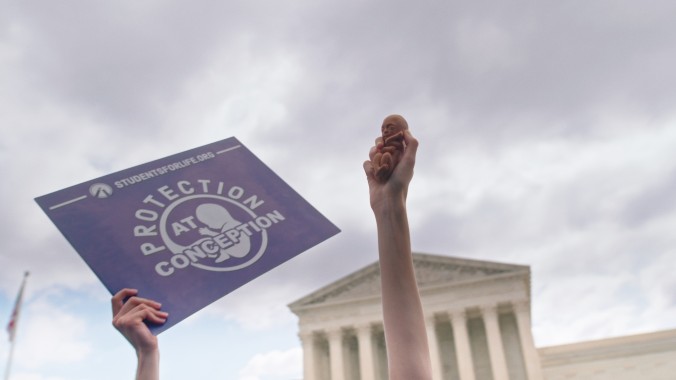How Crisis Pregnancy Centers Reproduce Sexual Violence, According to a CPC Victim
“They definitely prey on vulnerable people specifically,” Maleeha Aziz told Jezebel. “Had I known that was a fake clinic all those years ago, would I let them touch me? Absolutely not."
Photo: "Preconceived" AbortionIn Depth
In 2013, Maleeha Aziz was 20 years old when she immigrated to the U.S. from Pakistan and soon found herself with an unplanned pregnancy. She sought help from a loved one who was in medical school to find an abortion clinic, but they inadvertently directed her to an anti-abortion crisis pregnancy center. Aziz recounts her story in the new documentary, Preconceived, which premiered at South by Southwest this week. In the film, Aziz details the lies and predatory behaviors that a Texas-based CPC wielded to try and convince her not to get the abortion she knew she wanted.
Aziz recalls a particularly chilling moment when a CPC worker told her she needed an ultrasound. Like most CPC workers, this person wasn’t a medically licensed health care worker. (Of course, Aziz didn’t know that at the time.) When Aziz explained she was uncomfortable with this due to past trauma as a sexual assault survivor, she says the CPC worker told her that, as a pregnant woman, she “[needed] to learn to deal with pain.”
Aziz did eventually get her abortion—the first of two, before choosing to have her daughter five years ago—but only after the CPC lied that it was too late for her to get one in Texas (it wasn’t), forcing her to “spend money I didn’t have” and travel to Colorado for the procedure while suffering from severe morning sickness.
Speaking to Jezebel this week, Aziz says she sees her identities—as a survivor, an immigrant, and, at the time, a financially insecure young woman—as key factors in why and how a CPC targeted her. “They definitely prey on vulnerable people specifically,” Aziz explained. “Had I known that was a fake clinic all those years ago, would I let them touch me? Absolutely not. I wouldn’t have even gone in there. I was deceived and violated.” Aziz says she felt she had to allow the CPC workers to perform the invasive ultrasound on her because she thought they were medical professionals. “But they weren’t, so it’s not OK that they did that. That’s violent in and of itself—that they touched me under false pretenses, did all of these things to further traumatize me—that’s absolutely violence.”
-

-

-

-

-

-

-

-

-

-

-

-

-

-

-

-

-

-

-

-

-

-

-

-

-

-

-

-

-

-

-

-

-

-

-

-

-

-

-

-










































